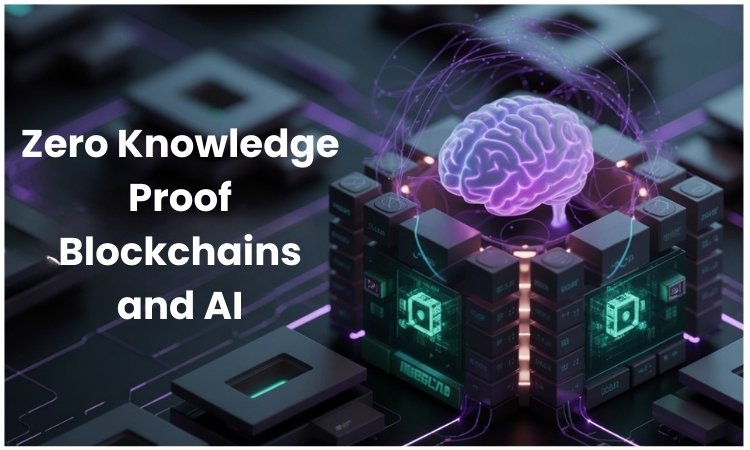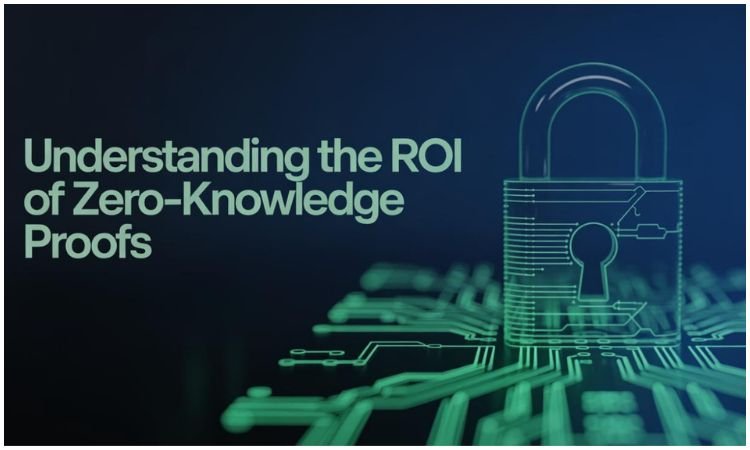Introduction to Zero-Knowledge Proofs

Zero-knowledge proofs (sic ZKPs) refer to cryptographic techniques that enable the prover to prove an assertion without providing more information. In the 1980’s, Shafi Goldwasser, Silvio Micali, and Charles Rackoff introduced this theory, which is widely used in secure communication and cryptography.
It has been demonstrated in this paper that ZKPs are important to security and privacy because of three factors. Completeness states that if an honest prover tries to convince an honest verifier that the statement is indeed true, he shall succeed. Coherency also protects the statement from an unscrupulous prover deceiving a genuine verifier if the statement is false. By zero knowledge, the verifier must know, strictly speaking, only the truth of the particular statement.
Working with ZKPs is crucial in secure voting, identity confirmation without showing the password, and anonymous cryptocurrencies’ operations because of universal traits. ZKPs are becoming integrated broadly into blockchain technologies for enhancing privacy and efficiency in dApps as well as smart contracts. Here in this article we will be discussing about the details regarding the same.
Interactive Zero-Knowledge Proofs

Definition
It should be noted that there are a number of interactive zero-knowledge proofs that imply prover-verifier communication. The prover is asked a series of questions, after which the verifier proceeds to ask questions to which only the prover must respond if proving the claim is the goal.
Examples
Graph Isomorphism
Interactive zero-knowledge proofs for problems like graph isomorphism are well known. The prover wishes to convince the verifier that two graphs are isomorphic, in other words, can be turned into one another by permuting vertices, without revealing the isomorphism. The verifier checks if one randomly permuted graph is isomorphic to another randomly chosen graph.
Hamiltonian Path
In the Hamiltonian Path problem, the prover has to prove that in a graph, a Hamiltonian path visits each vertex exactly once. The interactive proof lets the prover show the verifier the path without giving it away.
Protocols
Fiat-Shamir Protocol
The Fiat-Shamir Protocol is probably the most popular interactive method used for zero-knowledge proofing. A hash function simulates challenges of the verifier, turning an interactive proof into a non-interactive one. This method reduces communication overhead as the prover may provide proofs without constant engagement.
Goldwasser-Micali-Rackoff (GMR) Protocol
Goldwasser-Micali-Rackoff happens to be a protocol for producible interactive zero-knowledge proofs where proofs’ soundness was based on mathematical complexity such as NP-complete concerns. It opened ways for several research developments in the field of ZKP.
Non-Interactive Zero-Knowledge Proofs
Definition
NIZKPs are designed in such a way that interaction occurs only between a single prover and verifier. One technique to note is that NIZKPs use messages of public random strings or shared reference strings to generate and validate proofs without any communication.
Examples
SNARKs (Succinct Non-Interactive Arguments of Knowledge)
SNARKs are short, essentially non-interactive versions of NIZKPs. This satisfies the blockchain space since they tend to require brief proofs that can be politically timed to check.
STARKs (Scalable Transparent Arguments of Knowledge)
STARKs are an example of non-interactive, zero-knowledge proofs that exclude trusted setup and, as a result, maximize scalability and whiteness. Consequently, they are apt for large computations, at which they exhibit, besides others, proof verification in logarithmic time and zero-knowledge characteristics.
Protocols
Bulletproofs
Bulletproofs are a non-interactively secure zero-knowledge proof that gives proofs without a trusted initialization. They manage to be very efficient and secure; hence, they are perfect for personal Bitcoin dealing.
ZK-SNARKs
Zero Knowledge Short Proof Arguments of Knowledge, also known as ZK-SNARKs, help provide concise proofs while maintaining data authenticity. It must be acknowledged that such blockchain functionality is rather popular.
ZK-STARKs
ZK-STARKs has been found to be scalable and works on the ideas of STARKs but without the necessity of trusted setup. One of them uses obvious cryptography to reduce the number of proofs and increase the level of protection.
Proofs of Knowledge
Definition
Zero-knowledge proofs validate the claim about a statement and also prove the existence of knowledge, with proofs of knowledge building on ZKP. In this case, the prover may claim the proficiency without offering evidence.
Examples Sigma Protocols
Simple and efficient knowledge proofs have been sigma protocols. Their commitment, challenge, and response help the prover prove any claim.
Protocols Schnorr Protocol
The Schnorr Sigma process is known for the demonstration of understanding of the discrete logarithm. It is safe and efficient in proving any secret without revealing one’s secret.
Zero-Knowledge Proofs in Cryptocurrencies

Zcash
Zk-SNARKs help magically deal with transactions in Zcash. When Zcash uses zero-knowledge proofs, it protects its blockchain by ensuring transactions conducted remain anonymous.
zk-SNARKs Implementation
Zcash’s zk-SNARKs show zero-knowledge proofs take transactional confidentiality to the next level; this shields the privacy of users and guarantees the authenticity of blockchain transactions.
Ethereum
Ethereum is leading the space in everything smart contracts and decentralized applications can do, as well as the zk-rollups, scaling but not compromising anonymity and security.
zk-Rollups
Zk-Rollups is aggregating multiple transactions into one sole proof that can gain in speed on Ethereum transactions, and this would lead to faster Ethereum transactions when the feature zero-knowledge proofs pertaining to their privacy is added.
Recent advances and trends
Post-Quantum Cryptography
Security of encryption systems is being questioned as quantum computing advances. The zero-knowledge proofs that have been developed recently try to build post-quantum cryptographic protocols that would not reveal security once quantum computers break cryptographic assumptions.
Applications in Privacy-Preserving Systems
Zero-knowledge proofs find numerous applications in privacy-preserving technologies beyond cryptocurrencies. They represent a new generation of cryptographic protocols and have enormous potential in a wide class of applications. Applications include safe multi-party calculations, private identity verification, and secure data exchange, among others.
Conclusion
Summary
Zero-Knowledge Proofs can be understood as a cryptographic innovation that includes safe verification of information and protection of data. Proofs can be interactive or non-interactive. Their protocols will find applications not only in digital cryptocurrencies but also in privacy and other areas.
Future Directions
Zero-knowledge proofs point to a bright future with respect to the development in post-quantum cryptography and privacy-preserving technologies. There will definitely be more private and secure transactions, which will definitely make use of zero-knowledge proofs.







